This game really should have been a slam dunk. If not an overall crowd-pleaser, it should have been something that I myself should have loved. There are two reasons for this: I love anime fighters, and I adore MAGES’ Science Adventure series. If that title confuses you, just know it’s that semicolon series of anime and visual novels (Chaos;Head, Steins;Gate, Robotics;Notes, Chaos;Child, etc.). I remember hearing about this years ago when I was first breaking into the fighting game scene. I could play a fighting game with Kurisu from Steins;Gate and Rimi from Chaos;Head? Sign me up! I was excited when this re-release was announced, especially since it had a worldwide release and dual audio. I wasn’t expecting an in-depth, mechanically dense fighting game with a competitive scene, but a solid fighting game with fun characters. Especially since we at Nintendo Insider cover Switch games, and this is far from the ideal platform for the genre.
That’s not what we got. At least, that’s not what I got.
Phantom Break: Omnia is more of a Phantom Breaker 2.5 than a Phantom Breaker 3. Combining the casts of the first two games, rebalances, and adds two new characters. For Japan, this might not be too big of a deal, but for the west (who have only ever had the PB beat ’em-ups localized) this seemingly has some value. I have never played any of the Phantom Breaker fighting games, but it looked fun from the trailers.
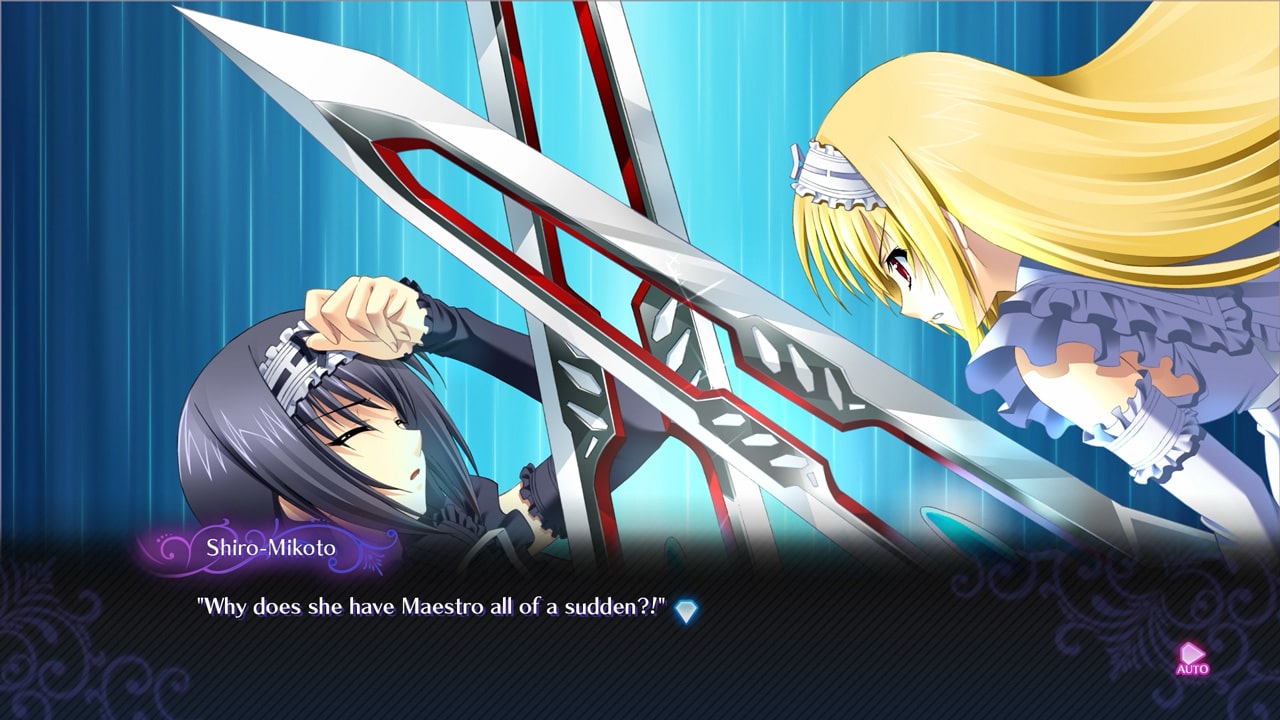
There are three playstyles that all characters share: Quick, Hard, and Omnia. Quick is the default experience which focuses on combos, Hard increases stats and focuses on single attacks, and Omnia is a middle ground of them both. Quick offers the most mechanics and is the most versatile so honestly, I can’t recommend the other two. There are a lot of mechanics for players to dive into, but they’re not all presented in the most intuitive way. This isn’t even in reference to the tutorial, which might be one of the worst ones I’ve seen in a game. Fighters have come a long way since massive info dump tutorials by making short gameplay segments that have new players engage with the systems as they learn. Phantom Breaker: Omnia’s (and maybe the original games too, I’m not sure) is a few massive pages of text accompanied by pictures. They’re essentially PDFs.
By going through them I discovered that the game does not have traditional command inputs, otherwise known as the dreaded quarter circles that newcomers struggle with so much. Fighting games can find ways around this, with Granblue Fantasy Versus being the best recent example by mapping command input attacks to buttons, but it’s rare for them to not have any. The closest thing you have is directional inputs to get special moves, but I imagine anyone who finds a character they enjoy might get bored in a few hours because of a small movement pool. I gravitated to Rimi and Kurisu the most, and found them lacking in play style because of this.
Where the game fumbles the most is the simple act of fighting. The bouts just don’t really feel fun. The movement is sticky, for lack of a better word. The fighters don’t seem very balanced, and the mechanics aren’t tight enough like Marvel vs. Capcom 3 or Persona 4 Arena Ultimax where balance issues can be shrugged off. Combos just don’t flow together in the way that they should, and I don’t think it all comes together for a smooth experience. The damage numbers also just seem off. Special attacks don’t do nearly enough damage as they look like they should, and battles tend to last really long. For reference, each on-screen second that ticks down in the match timer is around two actual seconds. Almost every battle I played lasted around 50-60 omnia seconds. I’m not even a high-level fighting game tech guy, so I apologize if I lack the vernacular to describe why battles don’t feel the best.
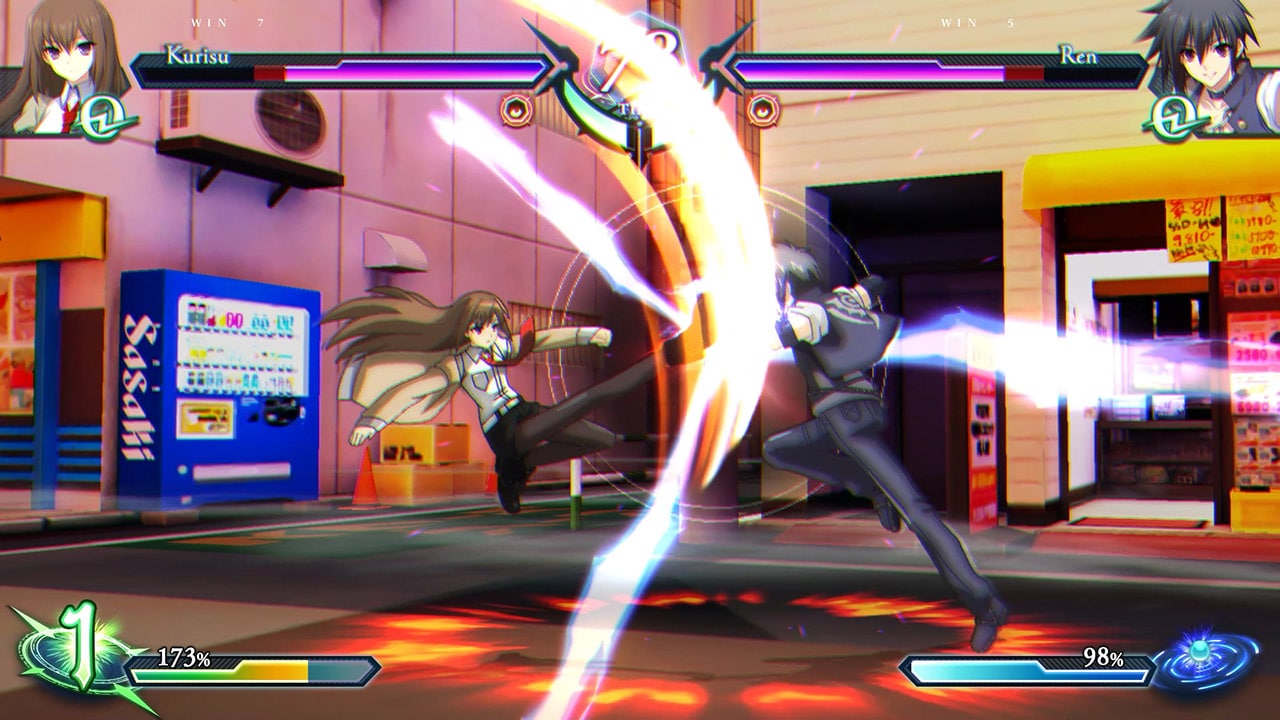
The weirdest exclusion I noticed in my time with the game was a lack of basic user experience and quality of life. Holding right on the character select screen doesn’t scroll. You have to manually tab through to pick your character, one d-pad press at a time. Randomly selecting your character and/or stage initially seems to not be a feature, which is crucial for fighting games. When messing with the controls, I accidentally discovered that pressing in one of the thumbsticks randomly selects. There is no on-screen indication of this. You can’t see your command list in the pause menu in a match. I’m sure I missed some, but these were all inherent to me immediately.
I think the visuals of Phantom Breaker would be passable if there was more cohesion. I don’t care for most of the designs already, but because this is combining two fighting games together that had different aesthetics minor problems arise. Half of the cast have 2D sprites, half have 3D models trying to look like 2D sprites. Since these models were made for seventh-gen consoles, they don’t look the best, and the sprites themselves don’t look that crisp either. The character art is of high quality, and I think the stages are quite good, but everything else is weak. There’s no real spectacle in battle, so it’s not really a fun game to watch either.
In terms of single-player content, there’s a story mode broken up by individual characters. I wouldn’t say the writing is groundbreaking but it got some smirks out of me and was fully voiced. In addition to this, there’s a gallery to unlock music and art based on in-game achievements, but that’s about it for gameplay modes outside of your typical versus and training modes. Not exactly sparse, but not exactly dense either. A passable amount of single-player options for a fighter.
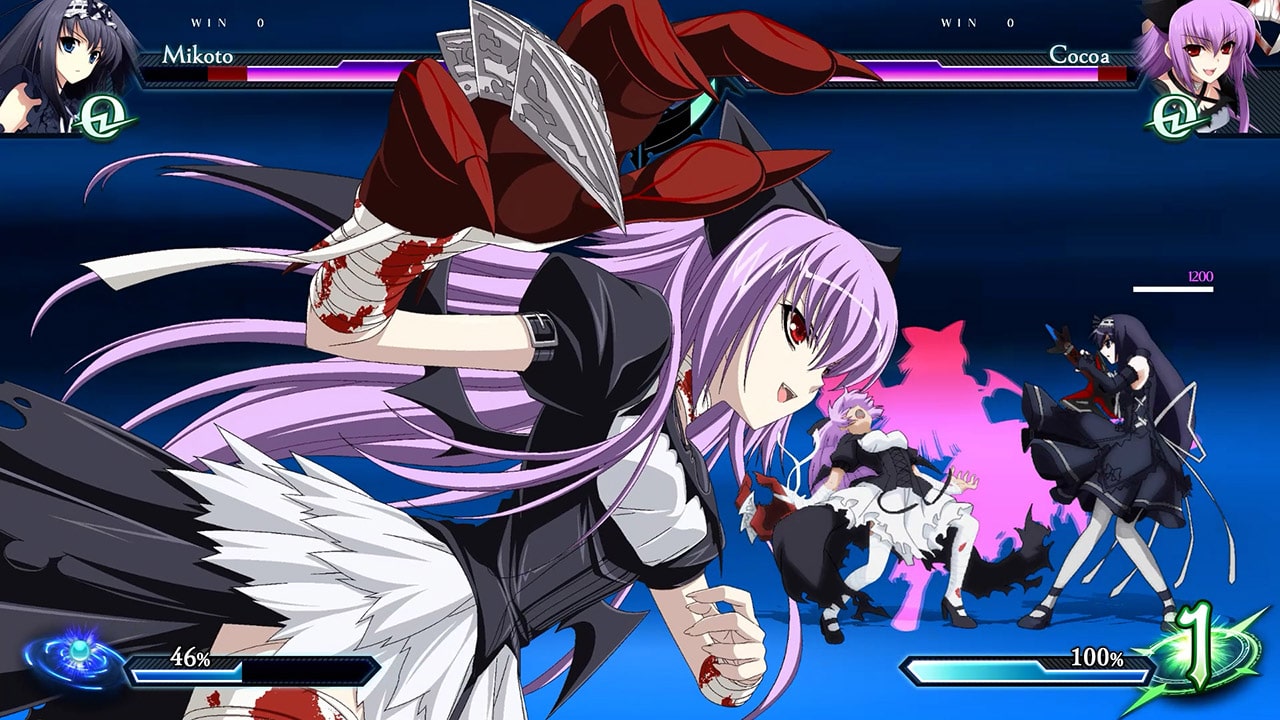
It was announced early on that Phantom Breaker: Omnia would not have Rollback netcode, which is practically a death sentence for a fighting game’s longevity in the nightmare world of the present reality. I understand that for a new publisher, Rocket Panda Games probably had issues affording the implementation of Rollback (God knows I have no idea how hard it is), so I was still willing to see how the netcode felt. In all my attempts to test this, I was able to get into a single match. Not only was the netcode itself poor, with input lag and chugging that made it nigh unplayable, but I found that ranked matches have no rematch option. I wasn’t able to find any other matches, but based on that first impression I’d doubt I’d want to. I don’t know if the pool of reviewers on Switch was small or if the feature was only implemented late into the review period, but I don’t know how much that matters. What I do know is the game defaults to introducing a frame of input lag to replicate the experience of playing an online match. I’m not sure how accurate this would be, but I know that as soon as I set this slider to 0 I felt the experience of playing local matches with my roommate at least felt a bit better. Not by much, but I would have liked for this to not have been on by default.
For $40, Phantom Breaker: Omnia is a hard sell. It’s got heart, and the localization team certainly tried to instill a sense of soul. Massive props to the English voice cast, it’s a solid dub. I just wish the mechanics were solid to hold the package up. If you are a fighting game fan you probably won’t be able to look past the floaty controls, loose game flow, and flimsy mechanics. It’s lacking basic quality of life, and all this stuff adds up. If you’re looking for a solid introduction to fighting games and enjoy anime, you’ll probably at least find some value here. I think there are much better introductory fighting games that offer smoother game flow and better spectacle to the players, and probably for cheaper. Simplified mechanics aren’t inherently a flaw, but I think Phantom Breaker: Omnia makes the fatal mistake of over-simplification. Maybe the Nintendo Switch port is just of subpar quality and the other consoles would have provided a better experience, but that just goes to show that if you do want to play this game you should do so elsewhere. I promise, I wasn’t going into this with Arc System Works-level expectations. I just wanted a good time. I think anime fans who don’t typically play fighting games will definitely be able to walk away from Phantom Breaker: Omnia with exactly that, I did not.
Version Tested: Nintendo Switch
Review copy provided by Rocket Panda Games



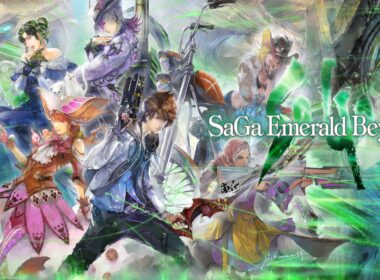
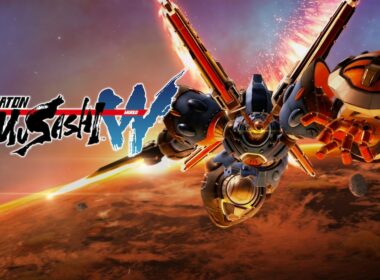
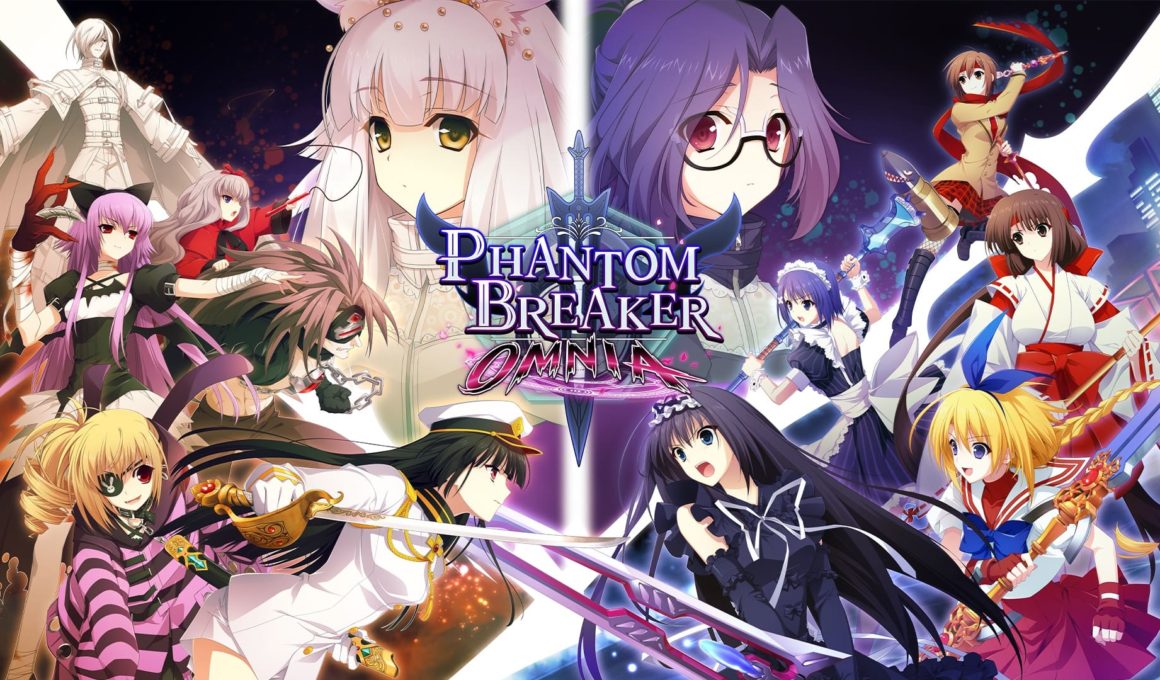
What a shame